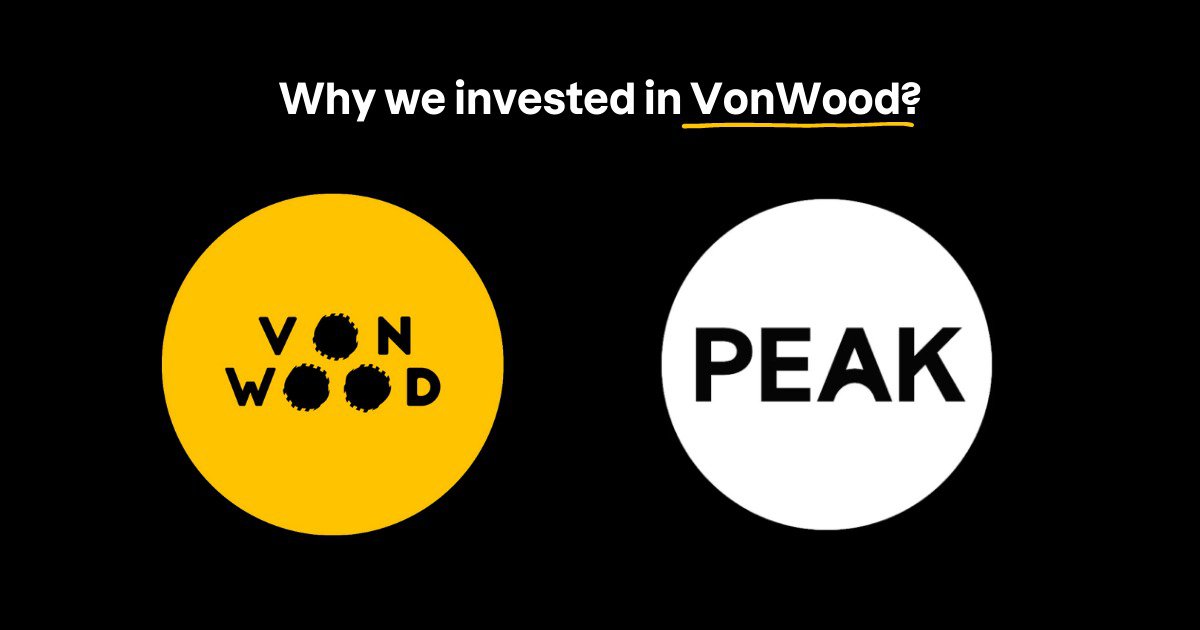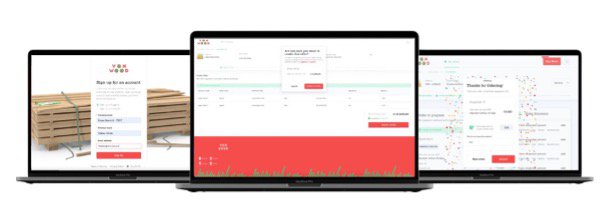
At the beginning of this year, we announced our investment in VonWood. VonWood is on a mission to bring the timber industry to the 21st century. It’s the first Dutch pre-seed startup that received investment from three investors with Dutch roots: DFF, Keen and Peak. So how did VonWood manage to get the first VC 

Here is how:
Team with industry, entrepreneurial and fintech experience.
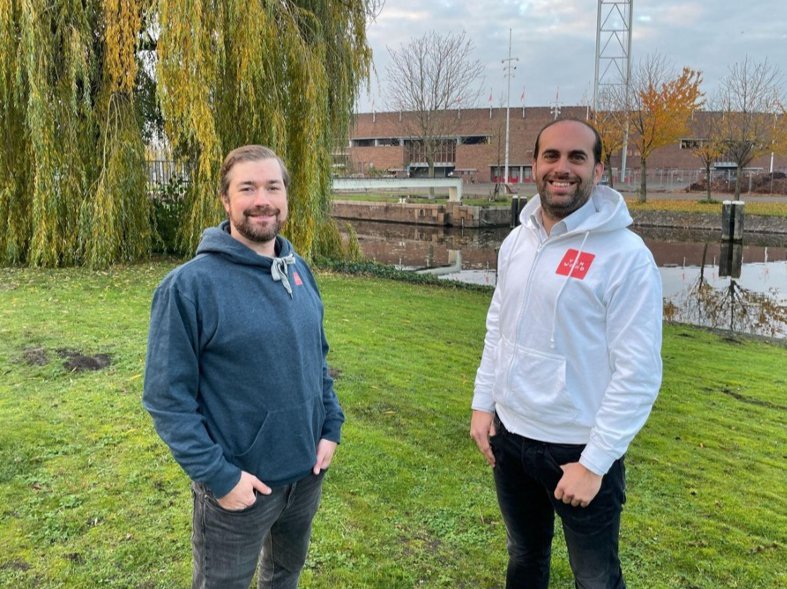
First and foremost, a pre-seed investment is mainly based on the team. We look for a strong complementary skillset, with industry knowledge and execution power. Co-founders David, who we know for many years, and Minck are both proven entrepreneurs building businesses in Media, Adtech, and Fintech. They’ve supplemented their team by hiring people with strong marketplace experience and deep industry experience. The team showed strong early execution, facilitating the first trades manually and steadily increasing the tech enablement in the trades. This showed the right approach to kickstart a B2B marketplace in an analog market.
A large traditional market, with the right tailwinds from environmental and market perspective.
The timber market is a €890bn market globally. If we narrow it down to European-sawn wood production we still see a 50bn+ market. Due to its low (software) tech adoption, this market hasn’t been disrupted yet. From Sawmill to end-customer the “worst case” supply chain contains a local trader, importer, wholesaler to, finally, the end-customer (e.g. a carpenter). This results in unnecessary margins which lowers the price for the sawmill and increases the price for the end-customer.
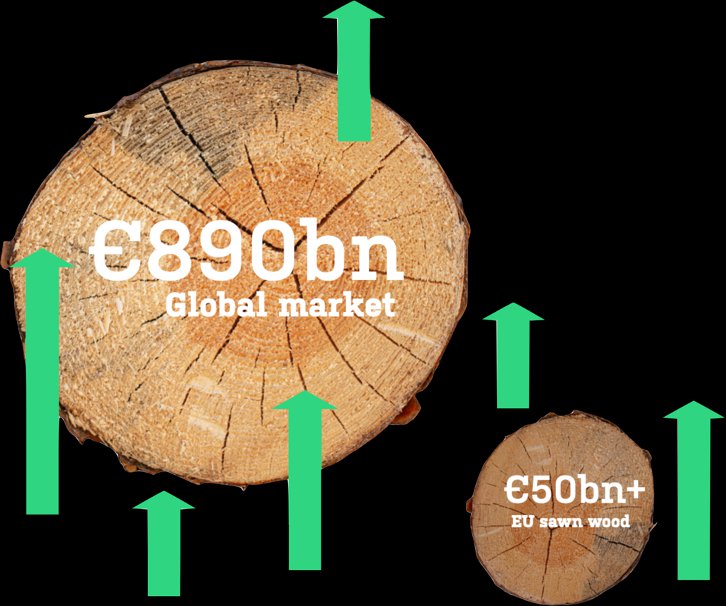
VonWood also has tailwinds from the construction industry due to the increased focus on building with sustainable materials. Wood is a great sustainable building material due to its renewability, carbon sequestration, and lower embodied energy compared to concrete and steel. Another factor is that due to the supply-chain disruptions in Covid, many of the existing supply-chain contracts went from long-term to short-term contracts. As a result, many sawmills and wholesalers are re-building and diversifying their supply chains.
Fragmentation, price, and quality opacity.
In Europe, there are over 35,000 sawmills and 400,000 wood manufacturers. Whilst you would expect wood to be a simple commodity, you would be surprised by the differences in quality, dimensions, and wood specs such as grain, texture, hardness, durability, and workability. Insert the local species, international price differences, and logistics, and you have the perfect cocktail of inefficiencies waiting to be resolved by tech.

Healthy Marketplace dynamics in repeat buys and supplier lock-in.
We love marketplaces with strong lock-in and repeat buys. However, for transactional B2B marketplaces, this isn’t easy to achieve. But if you look at Vonwood’s marketplace, it has opportunities to gain repeat buys from both ends of the market.
From a supplier perspective, Sawmills are most efficient if they can continuously produce and sell their stock for the highest price. With VonWood they increase the predictability of demand and get a better price for their wood. Instead of being dependent on 2-5 large wholesalers with the risk of reduced margins, Sawmills can reach thousands of end-customer directly with better prices via VonWood.
From a buyer’s perspective, VonWood focuses on a specific group of customers with a continuous demand for wood. Repeat buys can take place on a weekly, monthly, or quarterly basis depending on the customer profile. VonWood basically becomes their efficient procurement platform.
But if there is continuous demand why not work directly with Sawmills?
Great question! Well, some buyers will either try to set-up their direct tradeline or even acquire a sawmill. However, acquiring a sawmill creates additional risks of running efficient sawmill operations, and reduces the focus and agility of a business.
Businesses could also try to establish their own tradeline. Unfortunately, (but fortunately for VonWood 
This creates the perfect spot for a B2B marketplace that continuously sources the best prices, handles logistics, and curates the best quality directly from Sawmills. And these features are only the beginning..
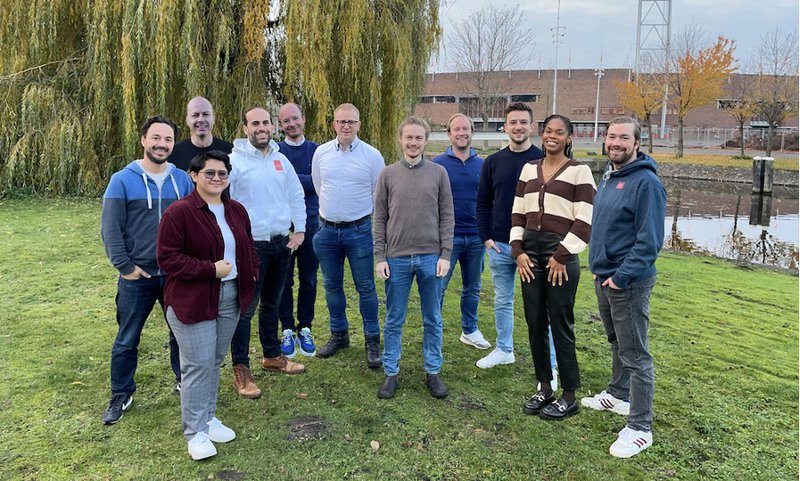
We’re looking forward to growing alongside team VonWood!
